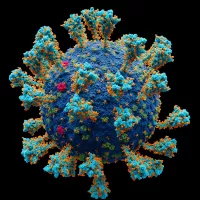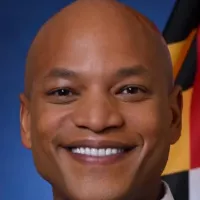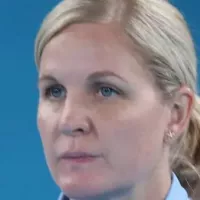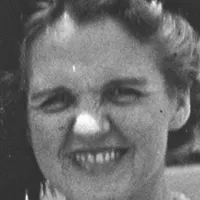Johns Hopkins University, established in 1876 in Baltimore, Maryland, is a private research university. Notably, it was the first American university modeled after European research institutions. It maintains graduate campuses not only in Baltimore but also in Italy, China, and Washington, D.C. Johns Hopkins is recognized as the first research university in the United States, emphasizing its commitment to advanced study and discovery.
1900: Founding Member of AAU
In 1900, Johns Hopkins became a founding member of the Association of American Universities.
1901: Ira Remsen Becomes President
In 1901, Ira Remsen became the second president of Johns Hopkins University.
February 22, 1902: Homewood Estate Transferred
On February 22, 1902, the Homewood Estate in north Baltimore was formally transferred to the university.
1907: Graduate Schools Opened to Women
In 1907, President Ira Remsen opened other graduate schools to women.
1909: Adult Continuing Education Programs Started
In 1909, Johns Hopkins University was among the first to start adult continuing education programs.
1914: School of Engineering Relocated
In the Fall of 1914, the School of Engineering relocated to the Homewood Estate.
1915: Gilman Hall Completed
In 1915, the flagship building, Gilman Hall, was completed.
1916: School of Public Health Founded
In 1916, Johns Hopkins founded the nation's first school of public health.
1916: Zanvyl Krieger School Relocated
In 1916, the Zanvyl Krieger School of Arts and Sciences relocated to the Homewood Estate.
1919: Woodrow Wilson Wins Nobel Peace Prize
In 1919, Woodrow Wilson, who received his PhD from Johns Hopkins in 1886, was the university's first affiliated laureate, winning the Nobel Peace Prize.
1925: James Franck Wins Nobel Prize in Physics
In 1925, James Franck, an affiliate of Johns Hopkins, won the Nobel Prize in Physics.
1934: George Minot and George Whipple Win Nobel Prize
In 1934, Johns Hopkins laureates George Minot and George Whipple won the Nobel Prize in Physiology or Medicine.
1942: Johns Hopkins APL Established
Since 1942, the Johns Hopkins Applied Physics Laboratory (APL) has served as a major governmental defense contractor.
1943: Establishment of the School of Advanced International Studies
Since 1943, the Johns Hopkins School of Advanced International Studies has produced many distinguished figures in the United States diplomatic corps as well as experts in defense and security policy.
1944: First Successful Blue Baby Operation
In 1944, African-American instructor Vivien Thomas was instrumental in developing the first successful blue baby operation.
1944: Joseph Erlanger and Herbert Spencer Gasser Win Nobel Prize
In 1944, Johns Hopkins laureates Joseph Erlanger and Herbert Spencer Gasser won the Nobel Prize in Physiology or Medicine.
1945: First Black Undergraduate
In 1945, the first black undergraduate entered Johns Hopkins University.
1950: School of Advanced International Studies Established
In 1950, the School of Advanced International Studies in Washington, D.C., was established as a professional school of international affairs and was incorporated into the university.
1963: Maria Goeppert-Mayer Wins Nobel Prize in Physics
In 1963, Maria Goeppert-Mayer, an affiliate of Johns Hopkins, won the Nobel Prize in Physics.
1967: Spiro Agnew becomes Governor of Maryland
In 1967, Spiro Agnew, who studied chemistry at Johns Hopkins but never finished his degree, became the Governor of Maryland.
1967: First Black Graduate Students
In 1967, the first black graduate students entered Johns Hopkins University.
October 1969: Undergraduate Admission of Women Adopted
In October 1969, the decision to admit women at the undergraduate level was adopted.
1969: Spiro Agnew continues as Governor of Maryland
In 1969, Spiro Agnew continued his term as the Governor of Maryland.
1971: Gil Scott-Heron releases "The Revolution Will Not Be Televised"
In 1971, Gil Scott-Heron, jazz poet and alumnus of the Writing Seminars at Johns Hopkins, released "The Revolution Will Not Be Televised", a precursor to modern rap music.
1972: Release of 'The Last House on the Left'
In 1972, Wes Craven, horror film director and alumnus of Johns Hopkins, released "The Last House on the Left".
1972: Inaugural Spring Fair
In 1972, the Spring Fair began as a Johns Hopkins tradition and has since grown to be the largest student-run festival in the country.
1974: Men's lacrosse team wins NCAA Division I title
In 1974, the Johns Hopkins men's lacrosse team won the NCAA Division I title.
1977: JHU Men's Swimming won NCAA Championship
In 1977, JHU Men's Swimming won NCAA Championship.
1977: Release of 'The Hills Have Eyes'
In 1977, Wes Craven, horror film director and alumnus of Johns Hopkins, released "The Hills Have Eyes".
1977: Peabody Institute Incorporated
In 1977, the Peabody Institute in Baltimore was incorporated into the university as a professional school of music.
1978: JHU Men's Swimming won NCAA Championship
In 1978, JHU Men's Swimming won NCAA Championship.
1978: Daniel Nathans and Hamilton O. Smith Win Nobel Prize
In 1978, Johns Hopkins laureates Daniel Nathans and Hamilton O. Smith won the Nobel Prize in Physiology or Medicine.
1978: Men's lacrosse team wins NCAA Division I title
In 1978, the Johns Hopkins men's lacrosse team won the NCAA Division I title.
1979: JHU Men's Swimming won NCAA Championship
In 1979, JHU Men's Swimming won NCAA Championship.
1979: Men's lacrosse team wins NCAA Division I title
In 1979, the Johns Hopkins men's lacrosse team won the NCAA Division I title.
1979: Highest Federal Research Funding
Since 1979, Johns Hopkins has had the highest federal research funding of any American university every year.
1980: Men's lacrosse team wins NCAA Division I title
In 1980, the Johns Hopkins men's lacrosse team won the NCAA Division I title.
1981: David H. Hubel and Torsten N. Wiesel Win Nobel Prize
In 1981, Johns Hopkins laureates David H. Hubel and Torsten N. Wiesel won the Nobel Prize in Physiology or Medicine.
1984: Men's lacrosse team wins NCAA Division I title
In 1984, the Johns Hopkins men's lacrosse team won the NCAA Division I title.
1985: Men's lacrosse team wins NCAA Division I title
In 1985, the Johns Hopkins men's lacrosse team won the NCAA Division I title.
1986: Formation of The Johns Hopkins Health System
In 1986, The Johns Hopkins entity was structured as two corporations: the university and The Johns Hopkins Health System. The president is JHU's chief executive officer, and the university is organized into nine academic divisions.
1987: Men's lacrosse team wins NCAA Division I title
In 1987, the Johns Hopkins men's lacrosse team won the NCAA Division I title.
1989: 15% of student body participated in Fraternity and Sorority Life
In 1989, 15% of the student body participated in Fraternity and Sorority Life.
1991: Founding of Alpha Phi Alpha
In 1991, Alpha Phi Alpha, a historically black fraternity, was founded at Johns Hopkins.
1993: Project MUSE launch
Since 1993, the Johns Hopkins University Press has run Project MUSE, an online collection of over 250 full-text, peer-reviewed journals in the humanities and social sciences.
1994: Founding of Lambda Phi Epsilon
In 1994, Lambda Phi Epsilon, an Asian-interest fraternity, was founded at Johns Hopkins.
1995: Founding of Lambda Upsilon Lambda
In 1995, Lambda Upsilon Lambda, a Latino-interest fraternity, was founded at Johns Hopkins.
1997: Publication of 'The Rape of Nanking' by Iris Chang
In 1997, Iris Chang, journalist and alumna of the Writing Seminars at Johns Hopkins, authored "The Rape of Nanking".
1999: Most cited institutions in the world
Between 1999 and 2009, Johns Hopkins was among the most cited institutions in the world.
1999: School of Professional Studies in Business and Education (SPSBE) established
In 1999, the disciplines of education and business were joined within the School of Professional Studies in Business and Education (SPSBE).
2000: Leading Recipient of NASA Research Funding
In 2000, Johns Hopkins received $95.4 million in research grants from NASA, making it the leading recipient of NASA research and development funding.
2001: Dave Pietramala Becomes Head Coach
In 2001, Dave Pietramala became the head coach of the Johns Hopkins men's lacrosse team.
2001: Arts Complex investment
In 2001, Hopkins invested in improving campus life with an arts complex, the Mattin Center, and a three-story sports facility, the O'Connor Recreation Center.
2001: Wes Moore graduated
In 2001, Wes Moore graduated from Johns Hopkins and played wide receiver on the football team.
2002: Mike Bloomberg becomes Mayor of New York City
In 2002, Mike Bloomberg, founder of Bloomberg L.P. and an alumnus of Johns Hopkins, became the Mayor of New York City.
2002: Riccardo Giacconi Wins Nobel Prize in Physics
In 2002, Riccardo Giacconi, an affiliate of Johns Hopkins, won the Nobel Prize in Physics.
2002: First University to Cross $1 Billion in Research
In FY 2002, Johns Hopkins became the first university to cross the $1 billion threshold in total research.
2003: Peter Agre Wins Nobel Prize in Chemistry
In 2003, Peter Agre, a Bloomberg Distinguished Professor at Johns Hopkins, was awarded the Nobel Prize in Chemistry for his discovery of aquaporins.
2005: Men's lacrosse team wins NCAA Division I title
In 2005, the Johns Hopkins men's lacrosse team won the NCAA Division I title.
2005: Football team tournament appearances
Since 2005, the Johns Hopkins football team had three tournament appearances.
2005: Women's soccer Centennial Conference title
Women's soccer won their Centennial Conference title for 7 consecutive years from 2005 to 2011.
2006: Teams won Centennial Conference titles
In 2006–2007 teams won Centennial Conference titles in Baseball, Men's and Women's Soccer, Men's and Women's Tennis and Men's Basketball.
2006: Renovation of dining facilities
In the summer of 2006, the large on-campus dining facilities at Homewood were renovated.
2007: Teams won Centennial Conference titles
In 2006–2007 teams won Centennial Conference titles in Baseball, Men's and Women's Soccer, Men's and Women's Tennis and Men's Basketball.
2007: Fencing Team Victory
In 2007, the Johns Hopkins fencing team defeated the University of North Carolina.
2007: Men's lacrosse team wins NCAA Division I title
In 2007, the Johns Hopkins men's lacrosse team won the NCAA Division I title.
2007: Women's team ranked number 8 in IWLCA Poll Division I
In 2007, the Lady Blue Jays were ranked number 8 in the Intercollegiate Women's Lacrosse Coaches Association (IWLCA) Poll Division I.
2007: Split of SPSBE
In 2007, the School of Professional Studies in Business and Education (SPSBE) split, leading to the emergence of the Johns Hopkins School of Education and the Carey Business School.
2008: Charles Village Project Completion
In 2008, the Charles Village Project was completed, bringing new commercial spaces to the neighborhood, including Charles (now Scott-Bates) Commons, a new residence hall with retail franchises.
2008: Baseball team ranked second in DIII College World Series
In 2008, the Johns Hopkins baseball team ranked second, losing in the final game of the DIII College World Series to Trinity College.
2008: Fencing Team Achievements
In 2008, the Johns Hopkins fencing team defeated the University of North Carolina and won the MACFA championship.
2008: Leading U.S. Academic Institution in R&D Spending
In FY 2008, Johns Hopkins University performed $1.68 billion in science, medical and engineering research, making it the leading U.S. academic institution in total R&D spending for the 30th year in a row.
2009: Undergraduate Population Demographics
As of 2009, the undergraduate population was 47% female and 53% male.
2009: Most cited institutions in the world
Between 1999 and 2009, Johns Hopkins was among the most cited institutions in the world.
2009: Carol Greider Wins Nobel Prize in Physiology or Medicine
In 2009, Carol Greider, a Bloomberg Distinguished Professor at Johns Hopkins, was awarded the Nobel Prize in Physiology or Medicine for the discovery that telomeres are protected from progressive shortening by the enzyme telomerase.
2009: Michael Steele becomes chairman of the Republican National Committee
In 2009, Michael Steele, an alumnus of Johns Hopkins, became the chairman of the Republican National Committee.
2009: Football team reached the quarterfinals of the NCAA Division III tournament
In 2009, the Johns Hopkins football team reached the quarterfinals of the NCAA Division III tournament.
2009: Hopkins won 8 Centennial Conference titles
In 2009–2010, Hopkins won 8 Centennial Conference titles in Women's Cross Country, Women's Track & Field, Baseball, Men's and Women's Soccer, Football, and Men's and Women's Tennis.
2010: Undergraduate Population Demographics
As of 2010, the undergraduate population was 47% female and 53% male.
2010: Hopkins won 8 Centennial Conference titles
In 2009–2010, Hopkins won 8 Centennial Conference titles in Women's Cross Country, Women's Track & Field, Baseball, Men's and Women's Soccer, Football, and Men's and Women's Tennis.
2011: Adam Riess Wins Nobel Prize in Physics
In 2011, Adam Riess, a Bloomberg Distinguished Professor at Johns Hopkins, won the Nobel Prize in Physics.
2011: Michael Steele continues as chairman of the Republican National Committee
In 2011, Michael Steele continued his term as the chairman of the Republican National Committee.
2011: Squash team ranking
In 2011, the Johns Hopkins squash team finished 30th in the College Squash Association ranking.
2011: Women's soccer Centennial Conference title
Women's soccer won their Centennial Conference title for 7 consecutive years from 2005 to 2011.
August 2012: Opening of the Brody Learning Commons
In August 2012, a four-story expansion to the Eisenhower Library, known as the Brody Learning Commons, opened, featuring state-of-the-art technology infrastructure, study spaces, seminar rooms, and a rare books collection.
2012: Women's team finished the season with a 9–9 record
The women's lacrosse team finished the 2012 season with a 9–9 record.
June 3, 2013: Blue Jays join Big Ten Conference for men's lacrosse
On June 3, 2013, it was announced that the Blue Jays would join the Big Ten Conference for men's lacrosse when that league begins sponsoring the sport in the 2015 season (2014–15 school year).
September 5, 2013: Matthew Green's "On the NSA" blog post
On September 5, 2013, Matthew Green, a cryptographer and Johns Hopkins professor, posted a blog titled "On the NSA", contributing to the debate on the role of NIST and NSA in formulating U.S. cryptography standards.
September 9, 2013: Take-down request for "On the NSA" blog
On September 9, 2013, Matthew Green received a take-down request from interim Dean Andrew Douglas for his "On the NSA" blog, citing concerns about links to sensitive material, raising concerns about academic freedom of speech.
2013: Mike Bloomberg ends term as Mayor of New York City
In 2013, Mike Bloomberg ended his term as the Mayor of New York City.
2013: Medical Campus Expansion Began
In 2013, a planned 88-acre expansion to the Johns Hopkins medical campus began.
2013: Establishment of Bloomberg Distinguished Professorships
In 2013, the Bloomberg Distinguished Professorships program was established by a $250 million gift from Michael Bloomberg, enabling the university to recruit researchers from around the world.
2013: Hopkins earned 12 Centennial Conference titles
In the 2013–2014 school year, Hopkins earned 12 Centennial Conference titles, most notably from the cross country and track & field teams, which accounted for six.
2013: Women's team finished the season with a 10–7 record
The women's lacrosse team finished the 2013 season with a 10–7 record.
2014: End of Legacy Preference in Admissions
In 2014, Johns Hopkins ended legacy preference in admissions.
2014: Hopkins earned 12 Centennial Conference titles
In the 2013–2014 school year, Hopkins earned 12 Centennial Conference titles, most notably from the cross country and track & field teams, which accounted for six.
2014: Blue Jays join Big Ten Conference for men's lacrosse
It was announced in June 3, 2013, that the Blue Jays would join the Big Ten Conference for men's lacrosse when that league begins sponsoring the sport in the 2015 season (2014–15 school year).
2014: Mixed-gender room policy
Since Fall 2014, a new policy has allowed students to live in mixed-gender rooms.
2014: Women's team finished the season 15–5
The women's lacrosse team finished the 2014 season 15–5.
June 17, 2015: Blue Jays join Big Ten Conference for women's lacrosse
On June 17, 2015, it was announced that the Blue Jays would join the Big Ten Conference for women's lacrosse in the 2017 season (2016–17 school year).
2015: Development of New Commercial Properties
In 2015, Johns Hopkins University began development of new commercial properties in Charles Village, including an upperclassmen apartment complex, restaurants, and a CVS retail store.
2015: Blue Jays join Big Ten Conference for men's lacrosse
It was announced in June 3, 2013, that the Blue Jays would join the Big Ten Conference for men's lacrosse when that league begins sponsoring the sport in the 2015 season (2014–15 school year).
2016: Blue Jays join Big Ten Conference for women's lacrosse
On June 17, 2015, it was announced that the Blue Jays would join the Big Ten Conference for women's lacrosse in the 2017 season (2016–17 school year).
2017: Blue Jays join Big Ten Conference for women's lacrosse
On June 17, 2015, it was announced that the Blue Jays would join the Big Ten Conference for women's lacrosse in the 2017 season (2016–17 school year).
November 18, 2018: Michael Bloomberg's Donation
On November 18, 2018, Michael Bloomberg donated $1.8 billion to Johns Hopkins, the largest private donation in modern history to an institution of higher education.
2018: Women's field hockey team reached the NCAA semifinals
In 2018, the Johns Hopkins women's field hockey team reached the NCAA semifinals.
January 9, 2019: Administrators' Contributions to Mayor Pugh's Campaign
On January 9, 2019, senior administrators and one retired hospital CEO contributed to Baltimore Mayor Catherine Pugh's re-election campaign.
January 2019: Purchase of the Newseum
In January 2019, Johns Hopkins University announced an agreement to purchase the Newseum in Washington, D.C., to house its D.C.-based graduate programs.
February 2019: Request for Private Police Force
In February 2019, Johns Hopkins University requested permission to create a private police force, sparking opposition.
April 8, 2019: Homewood Faculty Assembly Resolution
On April 8, 2019, the Homewood Faculty Assembly unanimously passed a resolution requesting that the administration refrain from further steps toward establishing a private police force.
April 2019: Community Safety and Strengthening Act Passed
In April 2019, the Community Safety and Strengthening Act passed, granting Johns Hopkins University permission to establish a private police department.
May 8, 2019: Arrests at Garland Hall
On May 8, 2019, Baltimore police arrested community members and students occupying Garland Hall, at the request of Johns Hopkins University.
October 2019: Nobel Prize Winners Affiliated with the University
As of October 2019, 39 Nobel Prize winners have been affiliated with Johns Hopkins University as alumni, faculty members or researchers, with the most recent winners being Gregg Semenza and William G. Kaelin.
October 2019: Prominent Faculty and Alumni
As of October 2019, Johns Hopkins faculty and alumni included 29 Nobel laureates, 23 Rhodes Scholars, a Fields Medalist, a President of the United States, and 2 heads of government of foreign countries.
2019: Purchase of the Newseum building
In 2019, Johns Hopkins announced the purchase of the Newseum building on Pennsylvania Avenue to house its Washington, D.C. programs and centers.
2019: Garland Hall Sit-In
In 2019, the Coalition Against Policing by Hopkins staged a sit-in of Garland Hall.
2019: Women's field hockey team reached the NCAA semifinals
In 2019, the Johns Hopkins women's field hockey team reached the NCAA semifinals.
2019: Coronavirus Research Center Tracking COVID-19
In late 2019, the university's Coronavirus Research Center began tracking worldwide cases of the COVID-19 pandemic, making it a highly cited source for data.
May 2020: Petition to Reconsider Police Department
In May 2020, following the killing of George Floyd, a petition called on president Daniels to reconsider the planned police department.
2020: Dave Pietramala leaves head coach position
In 2020, Dave Pietramala left his position as the head coach of the Johns Hopkins men's lacrosse team.
2020: University ranked 5 in number of utility patents
In 2020, Johns Hopkins University ranked 5 in number of utility patents granted out of all institutions in the world.
2020: Census Records Research
In 2020, research revealed that Johns Hopkins claimed to own at least five household slaves in the 1840 and 1850 decennial censuses.
2020: Undergraduate Population Demographics
In 2020, the undergraduate population of Hopkins was 53% female.
2020: Season cancelled due to the COVID-19 pandemic
In 2020, the women's field hockey season was cancelled due to the COVID-19 pandemic.
2020: Research Spending
In fiscal year 2020, Johns Hopkins spent nearly $3.1 billion on research, more than any other U.S. university for over 40 consecutive years.
2021: Research and Development Expenditures
As of the fiscal year 2021, Johns Hopkins has led all U.S. universities in annual research and development expenditures for over four consecutive decades, reaching $3.18 billion.
2021: Undergraduate Admissions Rate in 2021
In 2021, Johns Hopkins University's Office of Admissions accepted about 4.9% of its 33,236 Regular Decision applicants and about 6.4% of its total 38,725 applicants.
2021: Women's field hockey team reached the NCAA semifinals
In 2021, the Johns Hopkins women's field hockey team reached the NCAA semifinals and were the NCAA Division III National Championship runner-up, losing to Middlebury College.
2021: Demolition of the Mattin Center
The Mattin Center was demolished in 2021 to make room for the new Student Center scheduled to open in the fall of 2024.
September 2022: Community Skepticism Portrayed
In September 2022, community members expressed skepticism about the university operating in good faith regarding the establishment of the JHPD.
September 19, 2022: Draft MOU Public
On September 19, 2022, a draft Memorandum Of Understanding (MOU) with the Baltimore Police Department was made public, with a period to solicit community feedback.
December 2, 2022: MOU Finalized
On December 2, 2022, the Memorandum Of Understanding (MOU) was finalized, granting the JHPD primary jurisdiction over areas owned, leased, or operated by JHU.
2022: Academic standing of admitted students in 2022
In 2022, 99% of admitted students to Johns Hopkins University graduated in the top 10% of their high school class.
2022: Women's field hockey team reached the NCAA semifinals
In 2022, the Johns Hopkins women's field hockey team reached the NCAA semifinals and were the NCAA Division III National Championship runner-up, losing to Middlebury College.
2022: Women's soccer team won their first NCAA Division III Women's Soccer National Championship
In 2022, the Johns Hopkins women's soccer team won their first NCAA Division III Women's Soccer National Championship with a season record of 23-0-2. The coaching staff were named the Region V coaching staff of the year.
2022: Men's swimming team placed second at DIII Nationals
In 2022, the men's swimming team placed second at the NCAA Division III Nationals.
2023: Hopkins's Bequest Value
In 2023, Johns Hopkins's $7 million bequest made in 1873 is equivalent to $162 million.
2024: University Ranking in 2024
As of 2024, Johns Hopkins University is ranked the 6th best university in the nation (tied) and 13th best globally by U.S. News & World Report.
2024: New Student Center scheduled to open
In 2024, the new Student Center is scheduled to open, replacing the space previously occupied by the Mattin Center.
2024: Officer Recruitment and Training
In the spring of 2024, officer recruitment and training began for the JHPD, with officers starting active duty in the summer of 2024.
March 2025: Number of Nobel Laureates Affiliated with Johns Hopkins
As of March 2025, there have been 34 Nobel Laureates affiliated with Johns Hopkins as students, faculty, or researchers.
Mentioned in this timeline

Basketball is a team sport played on a rectangular court...
The United States of America is a federal republic located...

Michael Bloomberg is an American entrepreneur politician and philanthropist He...

Coronaviruses are a family of RNA viruses affecting mammals and...

Wes Moore is an American politician businessman author and former...

Washington D C is the capital city and federal district...
Trending

41 minutes ago Isaiah Joe to start for Thunder; Williams comes off bench, joins first unit.

41 minutes ago Kirsty Coventry navigates political challenges as IOC leader, eyes Los Angeles Olympics.

42 minutes ago Iowa Hawkeyes Prepare for Michigan, Celebrate Seniors; Freshman Shines Against Purdue.
2 days ago Cavs' Health Improves: Wade's Return Boosts Playoff Hopes; Mobley's Status Questionable
42 minutes ago Arsenal faces Tottenham; Arteta dismisses 'choke' label; Gyökeres key player.

2 hours ago Eileen Gu Dominates Halfpipe, Secures Gold and Sixth Olympic Medal in Career.
Popular

Jesse Jackson is an American civil rights activist politician and...

Barack Obama the th U S President - was the...

Bernie Sanders is a prominent American politician currently serving as...

Ken Paxton is an American politician and lawyer serving as...

Michael Joseph Jackson the King of Pop was a highly...
WWE Raw a professional wrestling television program by WWE airs...
